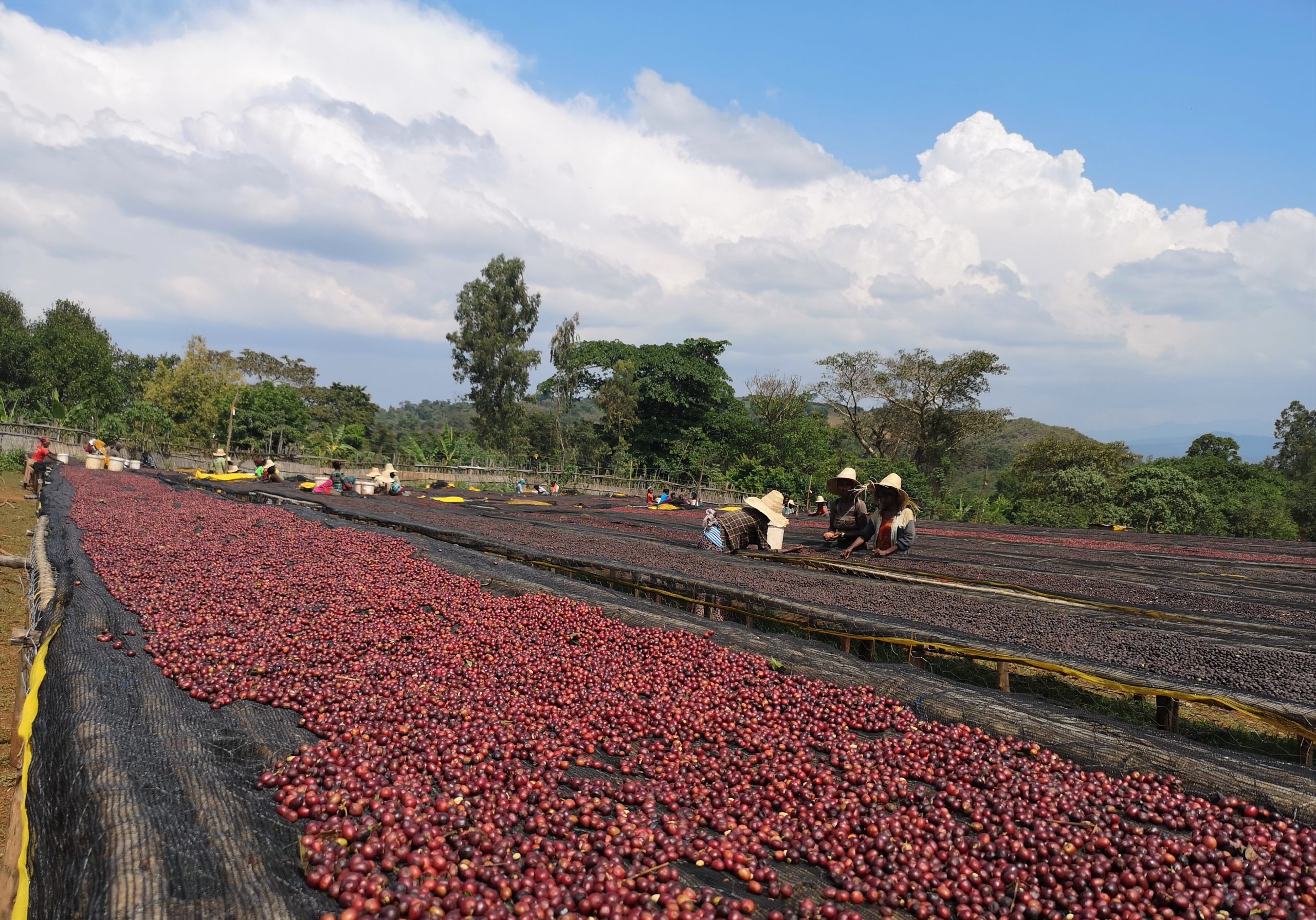Ethiopia Guji 4 Natural Kercha
Bags 0
Warehouses Oakland
Out of stock
About this coffee
Grower
Producers organized around the Daniel Yilak’s processing station
Altitude
1850 – 2000 masl
Variety
Indigenous heirloom cultivars
Soil
Vertisol
Region
Hambela Wamena woreda, Guji Zone, Oromia Region, Ethiopia
Process
Full natural and sun-dried on raised beds
Harvest
November - January
Certification
Conventional
Coffee Background
There are few entrances to Guji--a distant and heavily forested swath of land stretching southeast through the lower corner of the massive Oromia region--and none of these routes are short, or for the queasy, in any way. Guji is heavy with primary forest thanks to the Guji tribe, a part of Ethiopia’s vast and diverse Oromo nation, who have for generations organized to reduce mining and logging outfits where they can, in a struggle to conserve the land’s sacred canopy. Compared to other coffee-heavy regions, large parts of Guji feel like prehistoric backwoods. Daniel Yilak’s processing station is located in Kercha town, the namesake town of the Kercha district, in the southwestern part of the Guji Zone. Historically this part of Guji could be a full day’s walk from the nearest trading center of Gedeb, to the north, which left many coffee farmers debilitated by lack of access to market, and cherry prices often less than half of neighboring Gedeo or Sidama zones. Farmland in western Guji regularly reaches heights of 2600 meters or higher, and yet the scenery remains as fertile and bustling as anywhere. The highland farming communities in this part of the country can be at turns Edenic in their natural purity, and startlingly remote. The gorgeous arabica genetics of this area, blessed by some of the country’s healthiest biodiversity, could be easily ruined in transit, or homogenized into large regional blends with little traceability, both resulting in depleted pricing. One way for farmers to survive their price disadvantages was by having larger, more diversified parcels, sometimes 20 acres or more, with equal emphasis on livestock or other crops for local markets as on coffee. But the vast majority have always been small and coffee-centered. In the case of the farmers selling to Daniel, the average size is less than a single hectare each. Notably as well, cooperative unions, Ethiopia’s hallmark exporter organizations for small farmers, have little to no presence in this part of Guji. Were it not for private washing stations like Daniel’s in Kercha, local growers would have as their only option the sporadic, rogue coffee collector from Gedeo or farther, bringing rock bottom prices and a take-it-or-leave-it attitude. Daniel oversees the daily operations of the processing station throughout harvest. The station employs 350 local individuals on a seasonal basis. Unlike many processors in southern Ethiopia, Daniel purchases fully-dried cherry from participating farmers—meaning, this grade 4 is home-processed in extremely small batches. After collection, the dried cherry is checked for moisture consistency and hulled at the station’s dry mill, and then transported north to Addis Ababa to be fully milled for export. This is Daniel’s first year selling coffee to Royal direct from his processing station.




